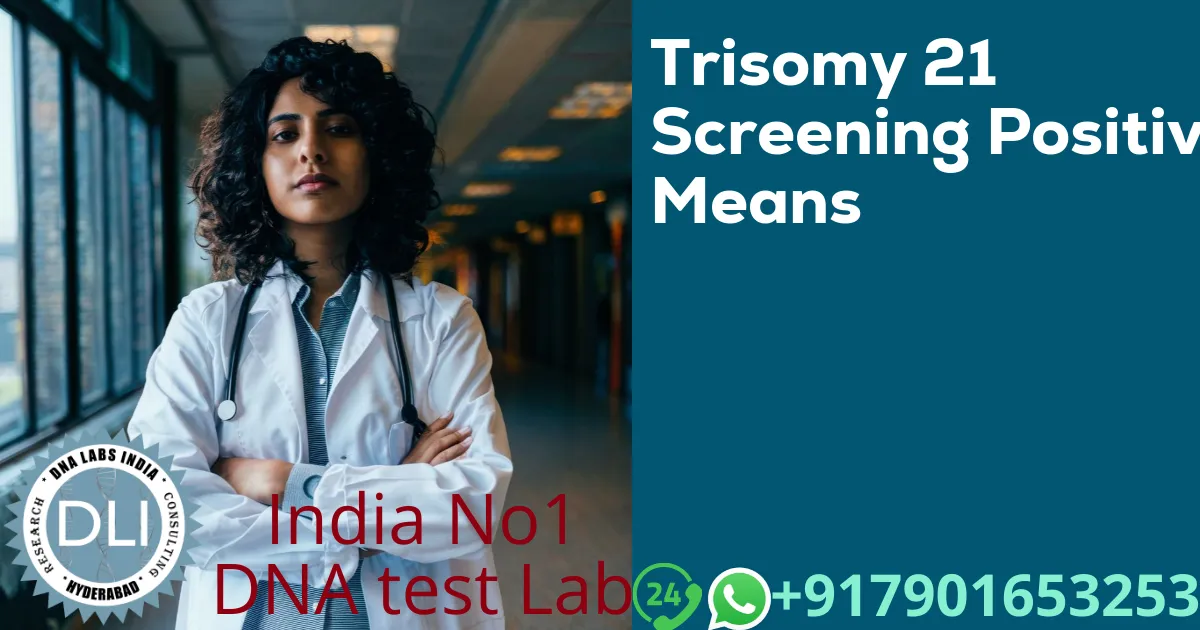Trisomy 21 Screening Positive Means
Trisomy 21 is a chromosomal disorder that occurs when there is an extra copy of chromosome 21 present in the cells of the body. This condition, also known as Down syndrome, is typically diagnosed through physical examination, medical history, and diagnostic tests.
A positive screening test result for trisomy 21 means that the person being tested has an increased risk of having this condition. It does not necessarily mean that the person has Down syndrome, but it does indicate the need for further testing to confirm the diagnosis. Additional testing, such as a diagnostic test or chromosomal analysis, may be needed to determine whether the person actually has Down syndrome.
What are Down syndrome tests?
Down syndrome is when a person is born with an extra chromosome or piece of a chromosome. The condition causes problems with development, thinking, learning, and physical health. Down syndrome tests can help find this
chromosome
disorder in unborn babies.
Most people with Down syndrome have an extra copy of chromosome 21 in all their cells. This common form of Down syndrome is called trisomy 21. “Trisomy” means having three copies of a chromosome in your cells instead of the usual two.
NIPT Test:
NIPT
(Non-Invasive Prenatal Testing) for trisomy 21, also known as Down syndrome, is a screening test that analyzes fragments of fetal DNA that are present in the mother’s blood. This test can be performed as early as 10 weeks of pregnancy and has a high accuracy rate of detecting trisomy 21. During the screening, the mother’s blood sample is analyzed to determine the amount of fetal DNA present. If the amount of fetal DNA is above a certain threshold, it may indicate that the fetus has trisomy 21. Further analysis can then be performed to confirm the diagnosis.
It’s important to note that while NIPT is highly accurate, it is still a screening test, and a positive result does not necessarily mean that the fetus has trisomy 21. In some cases, there may be false positives or false negatives, so confirmatory diagnostic testing such as chorionic villus sampling (CVS) or amniocentesis is usually recommended if a positive result is obtained. It’s also important to discuss the risks and benefits of NIPT with your healthcare provider to determine if this screening test is right for you.
What are the tests used for?
Down syndrome tests are used:
During pregnancy Estimate an unborn baby’s risk of Down syndrome. Confirm a diagnosis of Down syndrome in an unborn baby.
After birth to diagnose or rule out Down syndrome in a newborn that shows signs of the condition, usually, the karyotype tests are done on a sample of the baby’s blood. This test checks the number and structure of the baby’s chromosomes.
Why do I need a Down syndrome test?
You may need Down syndrome testing during
pregnancy
if you have a high risk of having a baby with Down syndrome. Your risk may be higher if:
Are there any risks to the tests?
Blood tests and ultrasounds have minimal risk. After a blood test, you may have slight pain or bruising at the spot where the needle was put in, but most symptoms go away quickly.
During amniocentesis or CVS, you may feel mild stinging or cramping. Both tests are safe, but they do have a slight risk of causing a miscarriage.



